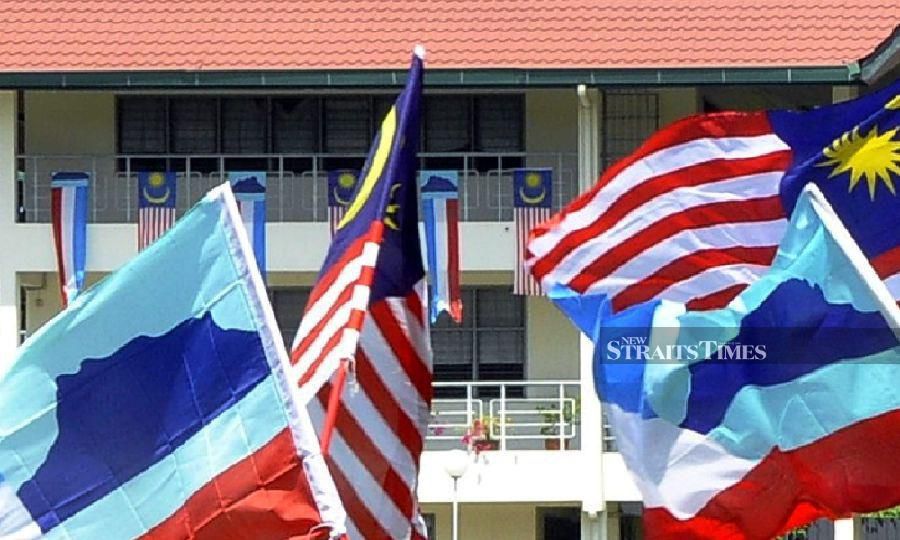'Presence of new leaders will be good for Sabah'

By Avila Geraldine - August 3, 2020 @ 10:31am
KOTA KINABALU: THE Sabah state election this time is likely to see a significant number of fresh candidates contesting the 73 state seats, including in newly-established constituencies.
This includes the possibility of voters being served a new menu of potential leaders to lead the next state government, apart from Datuk Seri Mohd Shafie Apdal and Tan Sri Musa Aman.
The electorate has the same expectations as well, as seen on social media, where they expressed hope to see new faces and potential young leaders who can produce better improvement instead of the "same old, same old".
Noting that Sabah's political drama is getting all the more interesting, Dr Romzi Ationg of Universiti Malaysia Sabah said ge wished to see a slew of new and capable candidates vying to be the next chief minister.
The political analyst pointed out that such a development would be good for Sabah.
"This will feature a multi-cornered battle and provide the voters with different picks of candidates for chief minister.
"So they (the people) should vote wisely this time," he told the New Straits Times.
With 13 additional seats up for grabs, the senior lecturer specialising in ethnic politics said the pressure was on all parties to present their best contenders.
"There will be challenges. More funds will be required in this snap election and all parties will need to identify winnable candidates more than ever.
"Despite these challenges, it is important to note that the new seats shall provide an opportunity for improvement, such as the concentration of development and paving way for additional parliamentary seats in Sabah," said Romzi.

Dr Romzi Ationg
Previously, the Sabah assembly had 65 seats, with 60 elected and five nominated. Parliament approved 13 new state seats for Sabah in July last year.
The additional seats are Bengkoka (N02), Bandau (N06), Pintasan (N08), Pantai Dalit (N13), Darau (N17), Tanjung Keramat (N24), Limbahau (N27), Tulid (N44), Telupid (N47), Sungai Manila (N51), Lamag (N58), Segama (N61) and Kukusan (N70).
On Thursday, Shafie, who is Parti Warisan Sabah president and Senallang assemblyman, announced the dissolution of the state assembly. He received consent from the Yang di-Pertua Negeri, paving the way for a snap election within 60 days.
The announcement came after Musa, who is Sungai Sibuga assemblyman, claimed to have secured a simple majority to take over the Warisan-led government on Wednesday.
The former chief minister was backed by lawmakers who crossed over from the Warisan-Sabah Pakatan Harapan (PH)-United Progressive Kinabalu Organisation (Upko) pact.
Universiti Malaysia Sarawak academician Dr Arnold Puyok said while calling a snap election might not be necessary, it was
a way to end the political crisis, especially between Musa and Shafie.
"Maybe in the view of the Yang di-Pertua Negeri, it is the only solution to satisfy both camps.
"The Istana Negeri could have done more, like releasing an official statement after assessing the proof of support from Musa and Shafie.
"Like I said, calling an election is the best way as it will force Musa and Shafie to seek the mandate of the electorate."

Dr Arnold Puyok
Puyok, who is a senior lecturer in politics and government studies, said he believed both camps would go for broke by contesting all 73 seats.
He also foresaw the election this time would be tough as the electorate might vote for alternatives and use the polls to punish defectors.
"Overall, it is a referendum to gauge the people's feeling about the performance of the Warisan-led government."
Commenting on the Warisan-Sabah PH-Upko defectors, Puyok said there was always a possibility that lawmakers would change allegiances.
"What surprises me is their timing and motive, (in other words) what could have triggered them to join Musa?
"My speculation is that because the Warisan-led government is weak and it is not supporting the federal government.
"Those who defected back to support Musa may look at it as an opportunity to seek redemption from the former chief minister, whom they deserted right after the 14th General Election (GE14)," he said.
In GE14, Sabah Barisan Nasional (BN) and Warisan-Sabah PH had both obtained 29 state seats, while Parti Solidariti Tanah Airku Rakyat Sabah (Star) led by Datuk Dr Jeffrey Kitingan won two state seats.
Musa was sworn in as chief minister on May 10, after obtaining a simple majority when Star decided to support BN.
Shafie, however, took over the BN-led state government two days later, after Upko left BN and teamed up with Warisan-Sabah PH.
Several Umno representatives also then defected to Warisan.
